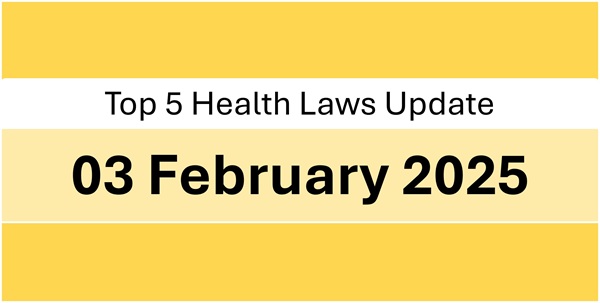Dear Readers, we are happy to share the most interesting legal and policy updates concerning health industry that we read today. we hope you enjoy reading it.
1. India’s Directorate General of Foreign Trade (DGFT) has launched an online module for filing the Annual Remission of Duties and Taxes on Exported Products (RoDTEP) Return (ARR), aimed at streamlining the process for pharma exporters. The module is available on the DGFT Portal and simplifies ARR filing, eliminating the need for physical documents.
Source: bit.ly/4hxQShu
2. India’s Parliamentary Standing Committee on Chemicals and Fertilisers has urged the Centre to actively implement recommendations from the Standing Forum on Medical Device Association, focusing on streamlining logistics and transitioning to licensing all types of medical devices.
Source: bit.ly/40XAnp8
3. The Directorate General of Foreign Trade (DGFT) has withdrawn the Track and Trace System for pharmaceutical exports under the Foreign Trade Policy (FTP), which required barcoding on primary packaging. The withdrawal is attributed to the implementation of the Ministry of Health & Family Welfare’s (MoH&FW) own barcode/QR code system, along with the fact that most export destinations have their own traceability systems.
Source: bit.ly/4aQDzqc
4. India’s Finance Minister has announced that 36 life-saving drugs, including cancer treatments, will be exempted from basic customs duty. Additionally, 37 more medicines will also benefit from this exemption. Furthermore, 6 life-saving medicines will be added to a list with a concessional 5% customs duty. The GST rate on cancer drugs like Trastuzumab, Osimertinib, and Durvalumab has been reduced from 12% to 5%. A new 13 Patient Assistance Programme has also been introduced.
Source: bit.ly/40UODPz
5. India’s Finance Minister in its 2025-26 Union Budget, announced that gig workers will be included in the Pradhan Mantri Jan Arogya Yojana (PMJAY) health insurance scheme. This will provide healthcare coverage to nearly 10 million online platform workers, offering financial protection to a sector that previously lacked structured benefits.
Source: bit.ly/4gmQwsN

